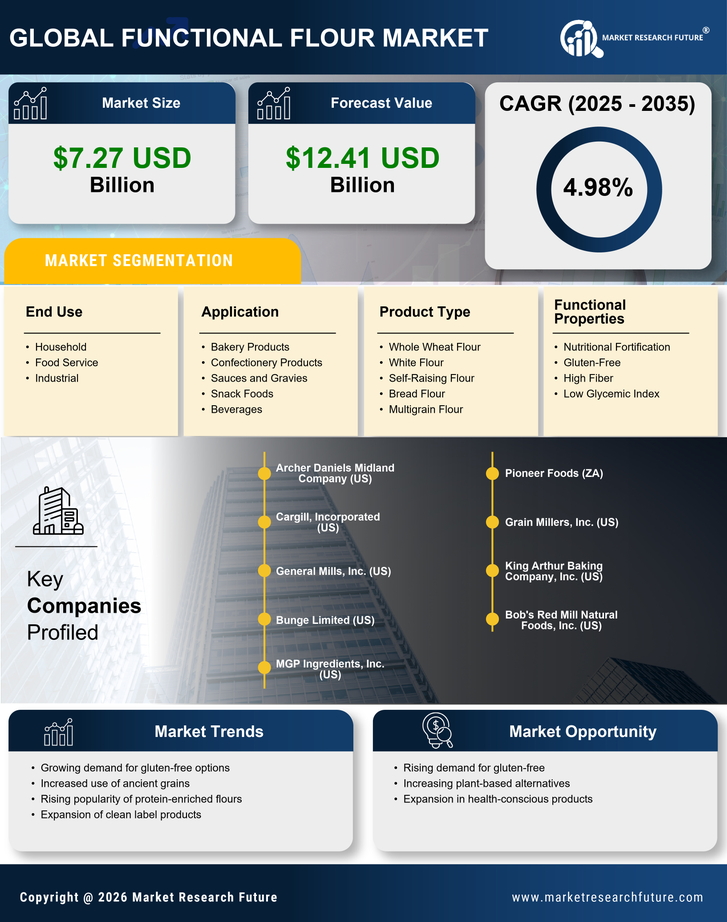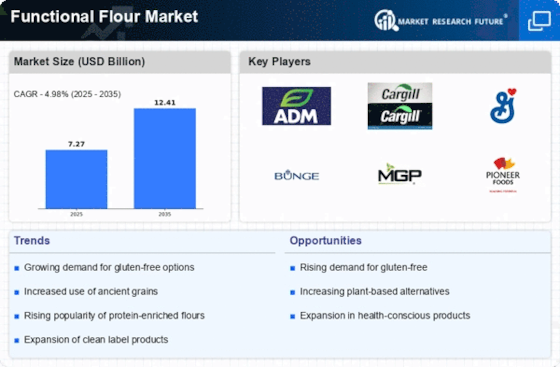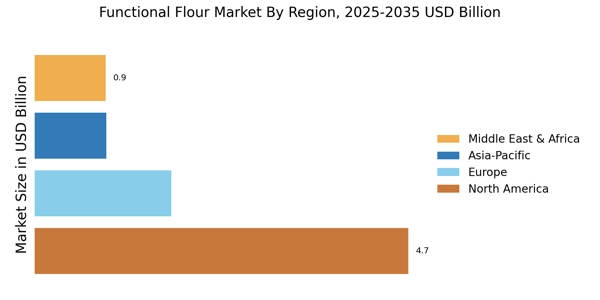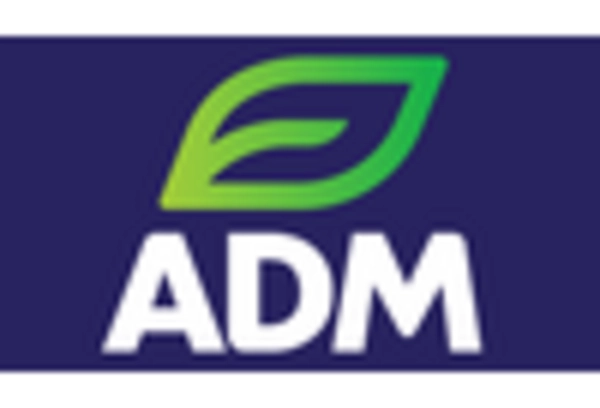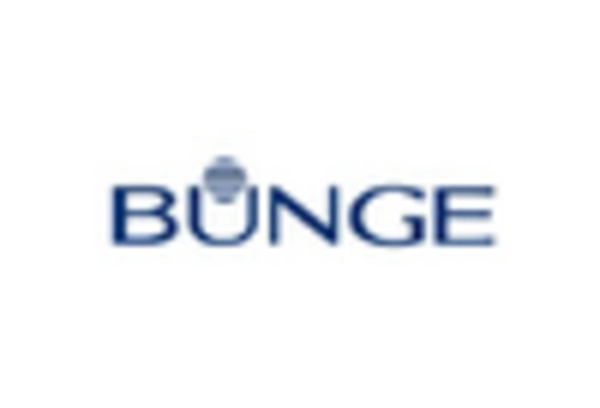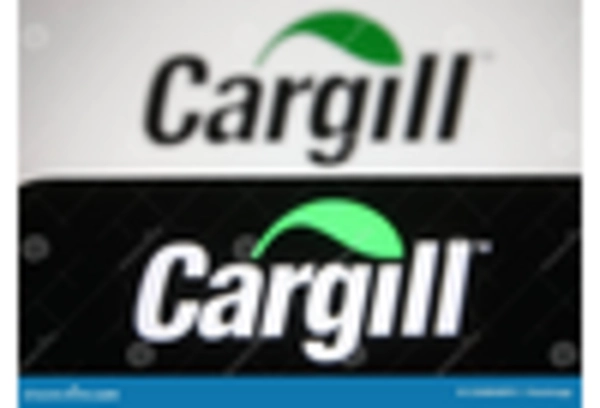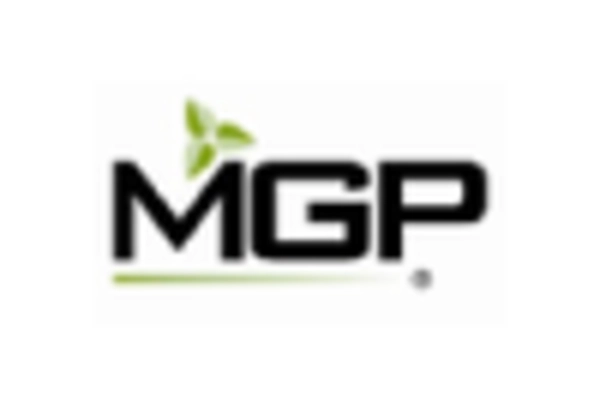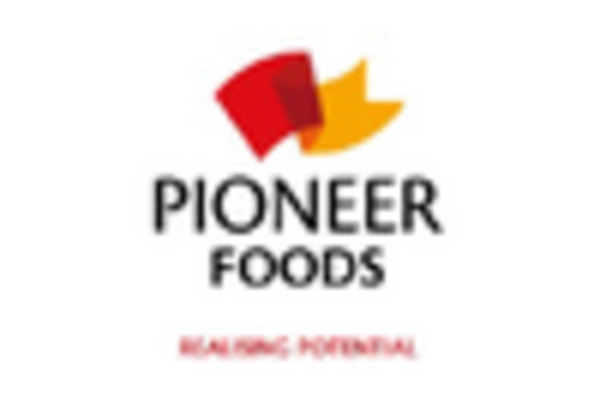Expansion of E-commerce Platforms
The rise of e-commerce platforms is significantly impacting the Functional Flour Market. As consumers increasingly turn to online shopping for convenience and variety, the availability of functional flours through digital channels is expanding. This shift is particularly beneficial for niche products that may not be readily available in traditional retail settings. Market data shows that online sales of food products, including functional flours, are expected to grow by over 10% annually. This trend not only enhances accessibility for consumers but also provides manufacturers with new opportunities to reach a broader audience. The expansion of e-commerce is likely to be a key driver in the ongoing evolution of the Functional Flour Market.
Rising Demand for Gluten-Free Products
The increasing prevalence of gluten intolerance and celiac disease has led to a notable rise in demand for gluten-free products within the Functional Flour Market. Consumers are becoming more health-conscious, seeking alternatives that cater to their dietary restrictions. This trend is reflected in market data, which indicates that the gluten-free flour segment is projected to grow at a compound annual growth rate of approximately 8% over the next five years. As a result, manufacturers are innovating to create functional flours that not only meet gluten-free standards but also provide enhanced nutritional benefits. This shift towards gluten-free options is likely to drive the overall growth of the Functional Flour Market, as more consumers prioritize health and wellness in their food choices.
Adoption of Innovative Food Technologies
The integration of innovative food technologies is transforming the Functional Flour Market. Advances in processing techniques, such as enzyme treatment and fermentation, are enabling the development of flours with improved functional properties. These innovations enhance the texture, flavor, and nutritional profile of flour-based products, making them more appealing to consumers. Furthermore, the application of technology in the production process can lead to cost efficiencies, which may benefit manufacturers. As the food industry continues to evolve, the adoption of such technologies is likely to play a crucial role in shaping the future of the Functional Flour Market, fostering growth and diversification.
Growing Popularity of Alternative Grains
The Functional Flour Market is witnessing a growing popularity of alternative grains, such as quinoa, amaranth, and buckwheat. These grains are being recognized for their unique nutritional profiles and health benefits, appealing to a diverse consumer base. The shift towards alternative grains is driven by an increasing interest in plant-based diets and the desire for more varied food options. Market data indicates that the alternative grain flour segment is projected to expand at a rate of approximately 7% over the next few years. This trend not only reflects changing consumer preferences but also highlights the potential for innovation within the Functional Flour Market, as manufacturers explore new formulations and product offerings.
Increased Interest in Nutritional Fortification
The Functional Flour Market is experiencing a surge in interest regarding nutritional fortification. As consumers become more aware of the importance of balanced diets, there is a growing demand for flours that are enriched with vitamins, minerals, and other beneficial nutrients. This trend is particularly evident in the rising popularity of whole grain and high-protein flours, which are perceived as healthier alternatives. Market data suggests that the fortified flour segment is expected to witness a growth rate of around 6% annually. This focus on nutritional enhancement not only caters to health-conscious consumers but also aligns with the broader trend of functional foods, thereby propelling the Functional Flour Market forward.
